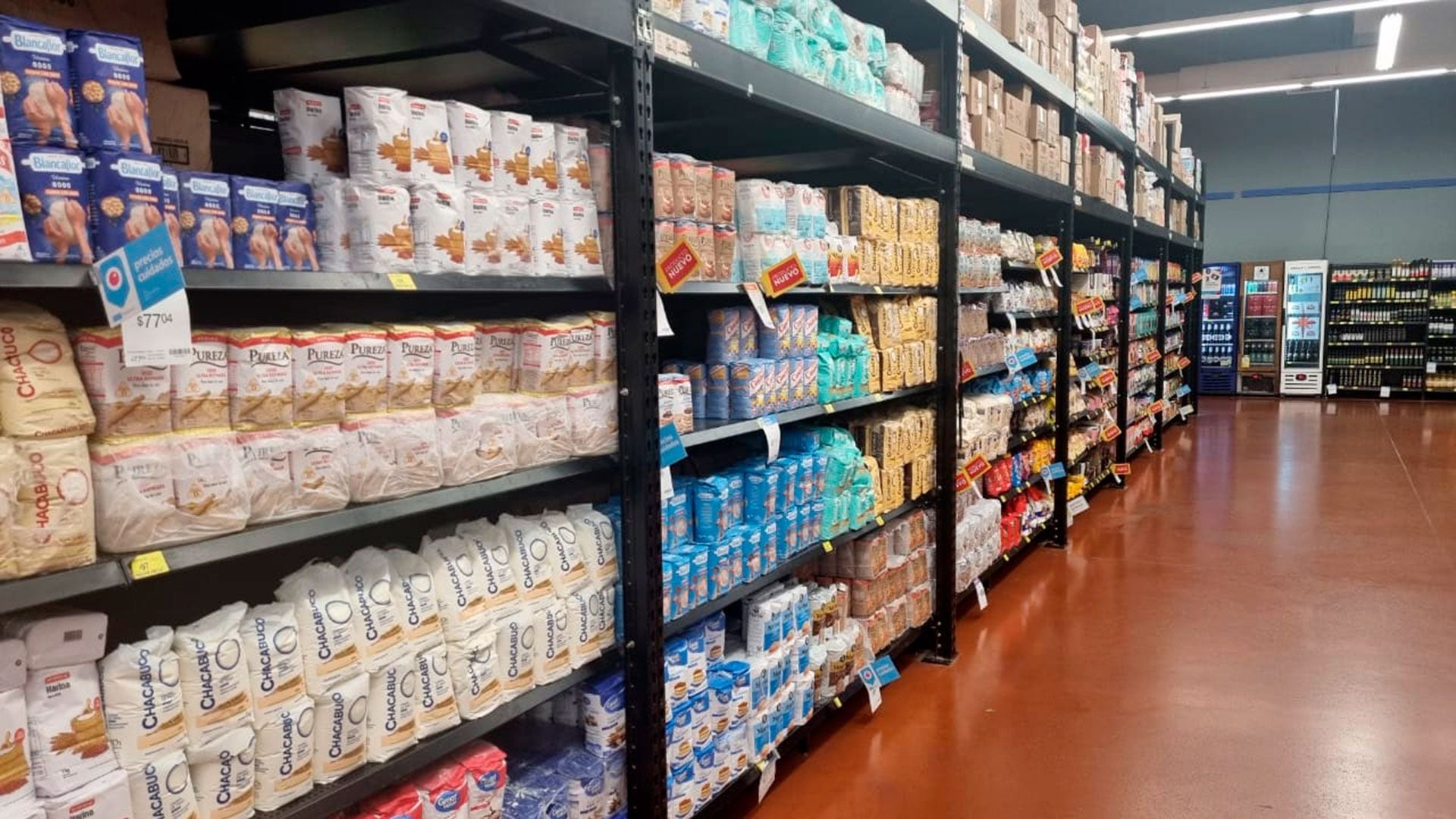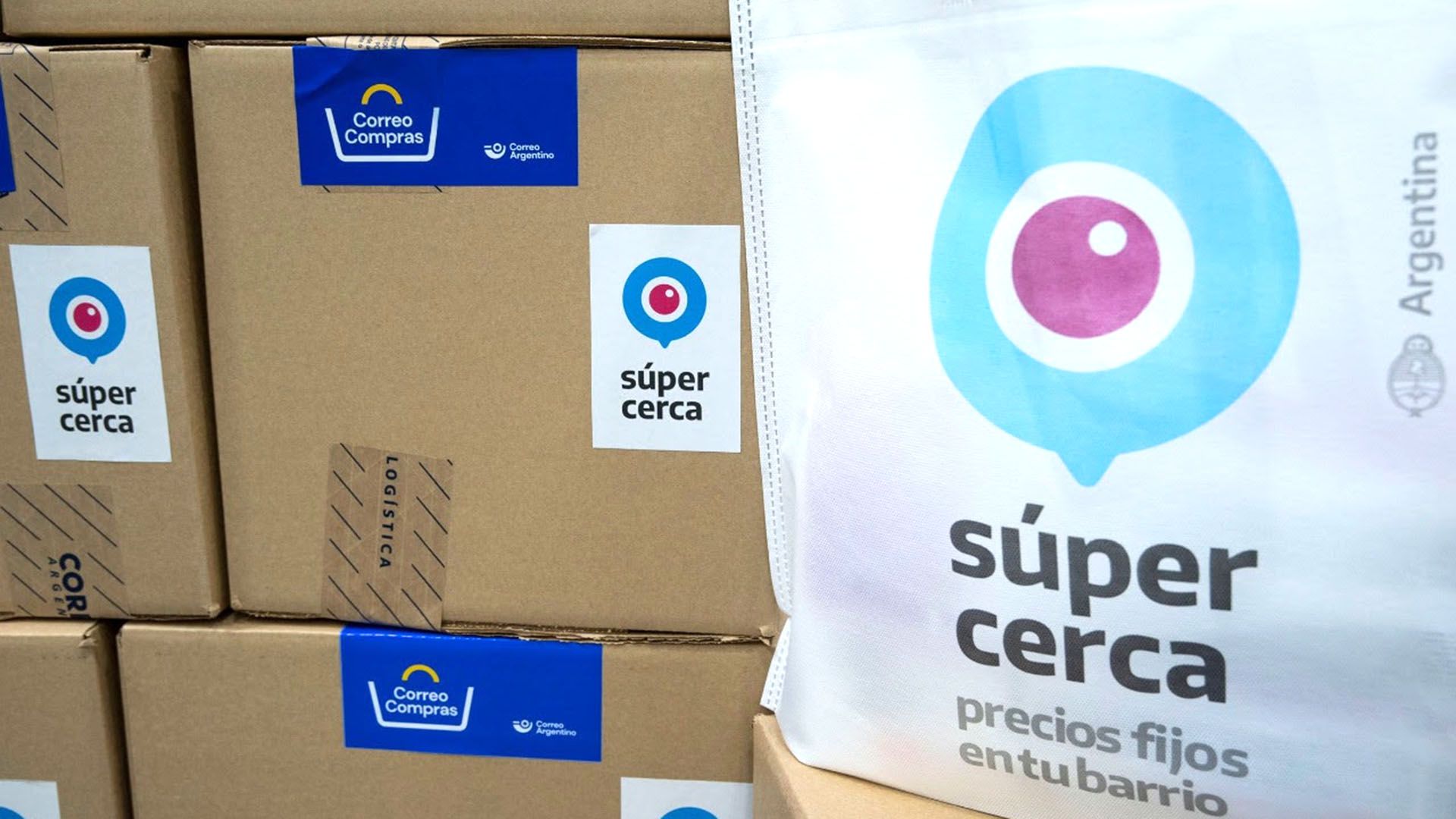
Since President Alberto Fernández spoke of “war on inflation”, inspections of food companies, calls, threats with sanctions and the implementation of the Supply Law have returned. All measures taken repeatedly in Argentina that proved not to be effective in controlling the general rise in prices. But the Government insists and continues to blame businessmen for speculating and being the generators of inflation.
In recent hours, and with the history of February inflation, which rose to 4.7% with 7.5% in food, the Ministry of Commerce called on supermarkets and mass consumption companies to express its concern about “disproportionate” increases that had been implemented in the last ten days. The reality is that increases have already occurred since the last few months and even more so, in basic products such as oils, flours and derivatives, since the war broke out between Russia and Ukraine at the end of February. But the President's speech anticipating measures forced his team to act. And he did, with the same old recipes: controls and more controls.
The first meeting between supermarkets, suppliers and internal trade was on Monday. In that meeting, some companies (Arcor, Molinos and AGD) and managers of the Food Industries Coordinator (Copal) and the United Supermarkets Association (ASU) participated. There, the Minister of Productive Development, Matías Kulfas, and the Secretary of Internal Trade, Roberto Feletti, told them that certain excessive increases could not be validated - registered through the SEPA system, which provides daily information for supermarkets - and that the dialogue would continue within 24 hours. The message to the food companies was that if the uploads were justified, there would be no inconvenience, but that it would be analyzed company by company.
It was not that time lapse that Feletti reconvened supermarkets yesterday and later his portfolio announced, in a statement, that the chains were had committed to rollback prices to 10 March from today. Secretariat sources told Infobae that it was detected that the increases had occurred only in the commercial channel and that there are about 580 products whose values will fall, but did not report which ones. Supermarkets were kept strictly silent, except Changomas (former Walmart), which admitted to receiving a list of just 3 products from a single perfumery and cleaning supplier on Monday.

“We were asked to revise those prices and made a commitment to revert the price of those prices back to the reference value of March 10. Something we did yesterday. Even today -yesterday- we had a working meeting where we reaffirmed our commitment to continue analyzing all necessary cases and working with suppliers to maintain ongoing commitments,” said Juan Quiroga, director of the company. Doubt remains over this list of 580 items that the Government does not want to disseminate, it says, because of statistical secrecy. The funny thing is that, according to the official statement, the chains that registered the highest increases were Changomas and Cencosud, and the first one only acknowledged receipt for three products that, on the other hand, are not food.
From the supplier companies, meanwhile, they expect to be convened individually to discuss costs and continue negotiating the next phase of Careful Pricing, which will begin on April 7 and will last until the beginning of July. It transpired that the Government intends to offer 6% in the quarter (2% per month), but companies are pushing for more increases, since inflation reached 5% in February alone. The list, as the Government told companies, would remain at around 1,300 items.
Proximity basket
On the other hand, Comercio Inland has been working in recent weeks with companies to define a new basket of basic foods to be marketed in local shops. It would be about 70 to 80 products, something similar to the “Super Close” launched by former Secretary of Commerce, Paula Español, which didn't work. Feletti plans to make the announcement today at a press conference and the difference with the previous regime is that the products will not have the price printed on the label. He would also add details of the wheat trust, as it transpired.
In any case, the doubts of the producing companies and the merchants are the same. How will the small store sell at a certain price if the margins are not agreed with the wholesale channel? “There are 250,000 points of sale nearby. We can guarantee the ex-factory price, but not at what value will it be sold in each of those stores,” they said in a leading company.
Anyway, the main food firms made their contribution and today the program will be announced. In this context of negotiations, the private sector was disturbed by the Government's accusations of supply. In the statement issued yesterday, Comercio Interior stated that “it was noted that some companies such as La Serenísima and Molinos Rio de la Plata are prioritizing supply to local businesses over supermarkets, thus attacking the Pricos Cuidados program, which operates in large chains throughout the country.”

“In this way,” he added, “the companies in question operate against the establishment of a regulated basket, which acts as an anti-inflation anchor, guaranteeing Argentines access to a wide and diverse amount of mass consumer goods. The same behavior was seen last week by the nucleated exporting refrigerators in the ABC consortium, which tried to boycott the Cortes Cuidados program, which prompted an intimation of Internal Trade and the subsequent action of the Ministry of Agriculture, Livestock and Fisheries to ensure its operation,” said the portfolio directed by Feletti, adding that also for this reason the signatures will be called in the coming days.
Some firms have already been cited by the Government - there was a meeting yesterday - and others are still waiting, while they prepare the files with the cost increases and comparative analyses of their increases with respect to other foods. Moreover, in Copal they have already done this work and it results, according to Indec numbers, that packaged foods have risen the least between March 2020 and February of this year.
The figures are as follows: tomato (276.52%); lettuce (243.33%); roasted (187.16%); apple (186.25%); orange (154.43%); pumpkin (146.45%); potato (117.27%); whole chicken (102.64%); flute bread (94.05%); yerba mate (108.92%); sunflower oil (107.90%); white rice (78.04%); fresh milk in a sachet (71.28%); water biscuits (57.50%); common flour ( 50.93%); sugar (44.07%) and stew noodles (42.35%). Still, companies argue that costs are growing sharply and that prices are rising much less than inflation.
KEEP READING:
Últimas Noticias
Debanhi Escobar: they secured the motel where she was found lifeless in a cistern
Members of the Specialized Prosecutor's Office in Nuevo León secured the Nueva Castilla Motel as part of the investigations into the case

The oldest person in the world died at the age of 119
Kane Tanaka lived in Japan. She was born six months earlier than George Orwell, the same year that the Wright brothers first flew, and Marie Curie became the first woman to win a Nobel Prize

Macabre find in CDMX: they left a body bagged and tied in a taxi
The body was left in the back seats of the car. It was covered with black bags and tied with industrial tape
The eagles of America will face Manchester City in a duel of legends. Here are the details
The top Mexican football champion will play a match with Pep Guardiola's squad in the Lone Star Cup

Why is it good to bring dogs out to know the world when they are puppies
A so-called protection against the spread of diseases threatens the integral development of dogs




